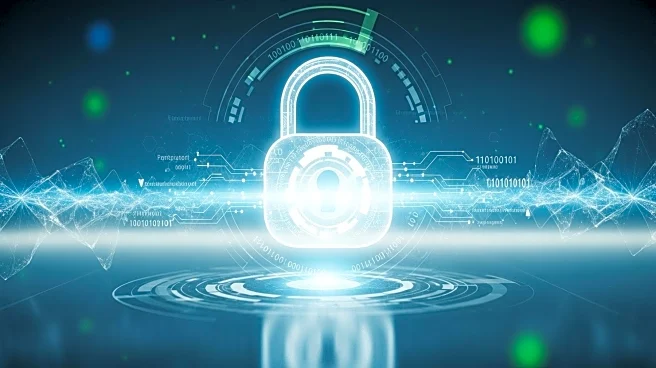What's Happening?
Signal, a widely used communications app, is enhancing its security by adding a quantum-resistant encryption layer to its messaging system. This new feature, called Sparse Post Quantum Ratchet (SPQR), is designed to protect conversations from potential future decryption by quantum computers. The SPQR layer will work alongside Signal's existing Double Ratchet protocol, ensuring that encryption keys evolve forward and cannot be reversed. This development aims to maintain Signal's key features, such as forward secrecy and post-compromise security, even in a post-quantum world. Currently, Signal uses elliptic curve cryptography, which is robust against today's computers but could be vulnerable to future quantum machines. The new protocol is designed to prevent attackers from decrypting past and future messages, even if they manage to hack the system. Signal's engineers have developed a method to keep data usage low by using erasure codes to split large keys into smaller chunks, ensuring resilience even if some packets are lost.
Why It's Important?
The introduction of quantum-proof encryption by Signal is significant as it addresses the growing concern over the potential capabilities of quantum computers to break current encryption methods. This move is crucial for maintaining the privacy and security of communications in the face of advancing technology. By implementing a quantum-resistant protocol, Signal is taking proactive steps to protect user data from future threats. This development is particularly important for industries and individuals who rely on secure communication channels to protect sensitive information. The adoption of such advanced encryption methods could set a precedent for other communication platforms, potentially leading to widespread improvements in data security across the industry.
What's Next?
Signal plans to gradually roll out the SPQR protocol across its user base, ensuring compatibility and security without disrupting the user experience. The company aims to make the upgrade mandatory for all sessions once every client supports the new protocol. Signal has collaborated with researchers and verification specialists to ensure the mathematical soundness and security of the new protocol. As the rollout progresses, other communication platforms may follow suit, adopting similar quantum-resistant encryption methods to enhance their security measures.
Beyond the Headlines
The implementation of quantum-proof encryption by Signal highlights the broader implications of quantum computing on data security. As quantum technology continues to develop, the need for robust encryption methods becomes increasingly critical. This development also raises ethical and legal considerations regarding data privacy and the responsibility of tech companies to protect user information. The move by Signal could prompt discussions on the need for regulatory frameworks to ensure the secure deployment of quantum-resistant technologies.











